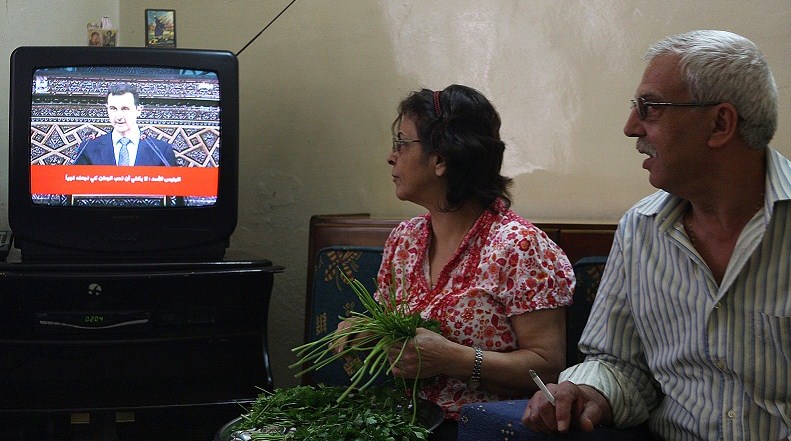
Yesterday, Syrian President Bashar Assad justified his government’s actions by comparing himself to a doctor trying to save a patient. As reported by the Associated Press, Assad stated in a speech:
When a surgeon in an operating room … cuts and cleans and amputates, and the wound bleeds, do we say to him your hands are stained with blood? Or do we thank him for saving the patient?
The disturbing words come against a backdrop of horrifying violence. Amnesty International has received the names of nearly 10,000 people killed since the government began cracking down on peaceful protestors over a year ago. Although peaceful demonstrations have continued, the unrest has turned increasingly violent. Armed opposition groups, many loosely under the umbrella of the Free Syrian Army (FSA), have also carried out attacks — mainly against Syrian security forces.
To make matters worse, local human rights NGOs in recent months have received the names of over 18,000 Syrians who have been detained by Syrian authorities, and they have said that the number of actual detainees could be double. Torture and brutality are all likely experiences for anyone held by the Syria authorities today.
Because there has been no international consensus yet on action, those perpetrating violence and destruction in Syria are comfortable that they can continue to behave as though they are above the law.
On Friday, the UN Human Rights Council held a special session to focus on the human rights crisis in Syria. The call for the session was backed by 51 nations, and it came in the aftermath of the recent attack by Syrian forces on the Syrian town of Houla, in which 108 individuals were killed, including 50 children. Sources have told Amnesty International that on May 25th, the residential area of Teldo in Houla came under a barrage of shells, mortars, and rockets, as well as raids.
My colleagues in London and Geneva described the following events in a statement submitted to the Council on the eve of the UN special session:
According to the eye witness, artillery shells and rockets were fired into areas of Houla by the Syrian military from around 8pm on Friday until around midnight, at times falling at the rate of one per minute. Sixty-two of those killed were from the Abd al-Razaq family in Teldo. All had been shot dead, except for a few children whose skulls had been smashed, presumably by rifle butts.
In the aftermath of the assault, the UN Human Rights Council voted to condemn the violence. The vote was 41 in favor of the condemnation, 3 against and 2 abstentions. Uganda and Ecuador abstained, and Russia, China, and Cuba all voted against the measure. Both Russia and China have been consistent obstacles to UN action to stop the violence in Syria. You can urge Russian diplomats to change their position by emailing the Russian government today.
Amnesty International is calling on the UN Security Council to impose an arms embargo that will stop the transfer of arms and equipment to Syrian government forces. We are also calling on the UN Security Council to refer the situation in Syria to the Prosecutor of the International Criminal Court (ICC) and to freeze the assets abroad of the Syrian President and his senior associates.
Unfortunately, Russia and China have both used their threatened vetoes at the UN Security Council to block such actions. Not only that, but other UN Security Council members have yet to support referring the matter to the ICC. As my colleague Donatella Rovera stated in The Washington Post:
Because there has been no international consensus yet on action, those perpetrating violence and destruction in Syria are comfortable that they can continue to behave as though they are above the law.
Which brings us back to the reported words of Assad — profoundly disturbing talk of blood, amputation, and “saving the patient.”
In a climate of impunity, anything becomes possible.
